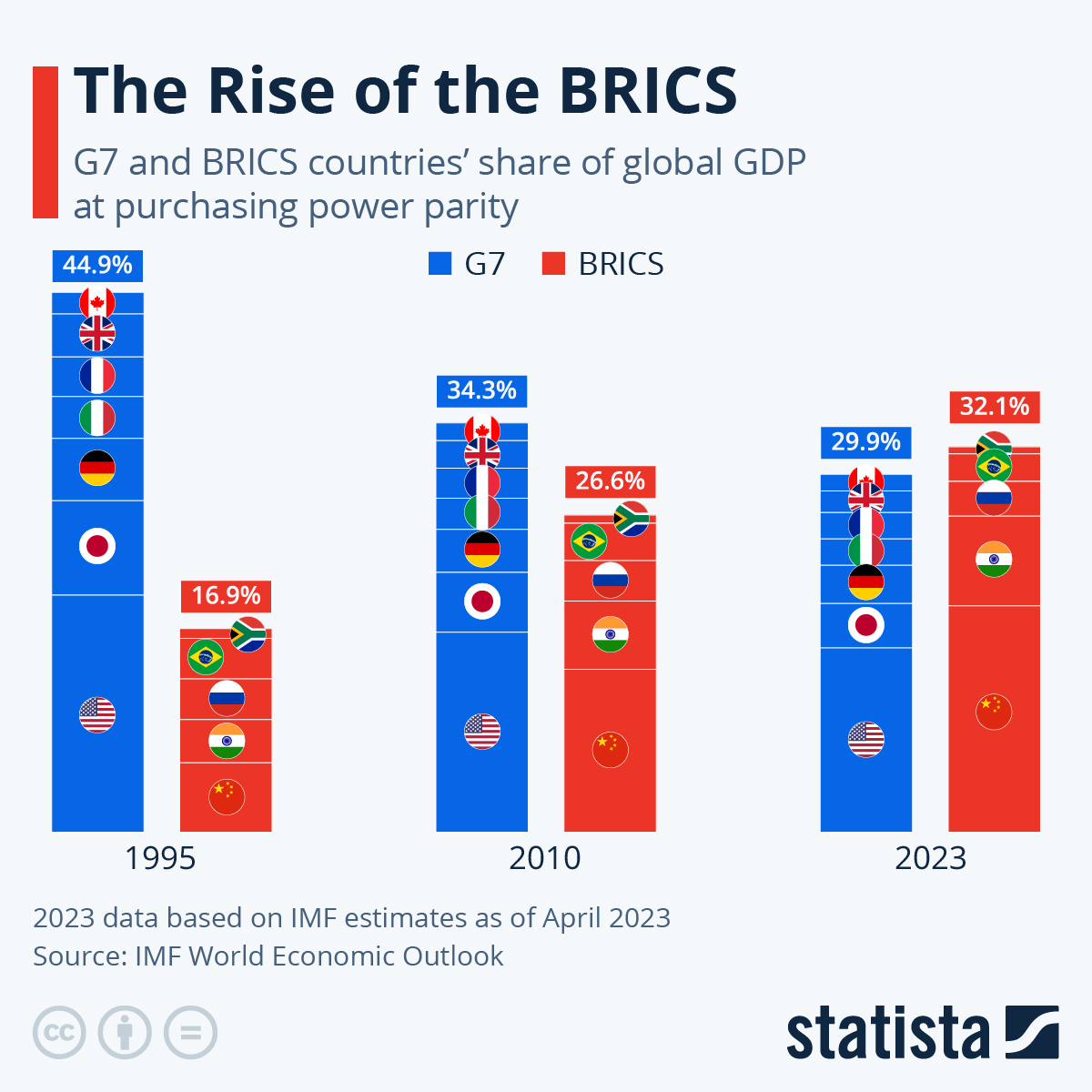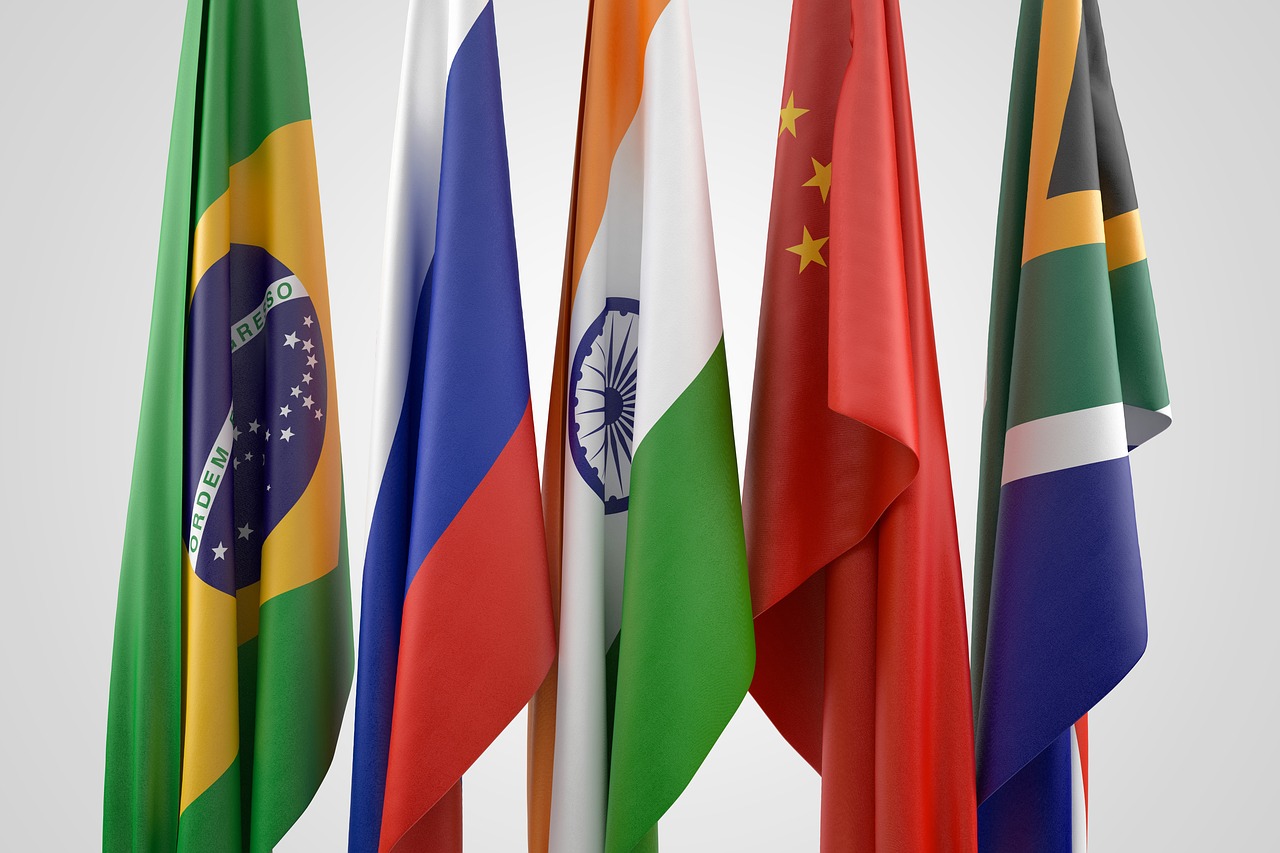Over the past two decades, the world has witnessed a profound shift in the global economic and geopolitical landscape, as the rise of the BRICS nations has introduced a growing counterweight to the traditional dominance of the G7. Starting on Tuesday, leaders of Brazil, Russia, India, China, and South Africa are meeting in Johannesburg, South Africa for the 15th annual BRICS summit, with the blocs’ possible expansion one of the talking points high on the agenda.
For a long time, the G7, consisting of the United States, Canada, the United Kingdom, Germany, France, Italy, and Japan, has held sway over global economic governance and decision-making. However, as the BRICS nations experienced rapid economic growth and development, their collective influence and ambition began to grow.
China’s spectacular economic ascent in particular has reshaped global trade, investment, and supply chains. The country’s manufacturing prowess, massive consumer market, and innovation-driven growth have propelled it to the forefront of the global economy. While India is still a couple of steps behind, its massive population and bustling tech industry position it well to become the bloc’s second economic superpower. Meanwhile, Russia, Brazil, and South Africa have fallen short of expectations, with their share of global GDP (at purchasing power parity) actually declining over the past two decades.
Despite the aforementioned three failing to pull their expected weight, the five BRICS nations surpassed the G7 in terms of their combined GDP in 2020. That is when measured at purchasing power parity, i.e. adjusted for differences in buying power. According to the IMF, the bloc will collectively account for 32.1 percent of global GDP this year. That’s up from just 16.9 percent in 1995 and more than the G7’s share of 29.9 percent.
The rise of the BRICS nations, while not without challenges and disparities within the group, has led to increased calls for more inclusive and representative global governance, adding more weight to voices that deviate from the policies shaped by the Western-led G7. Nowhere has that deviation been more apparent than in the response to Russia’s invasion of Ukraine. While the G7 condemned the attack and imposed strict sanctions on Russia, none of the BRICS members have denounced Russia’s actions or joined in on the sanctions.
 You will find more infographics at Statista
You will find more infographics at Statista
Ask me anything
Explore related questions





